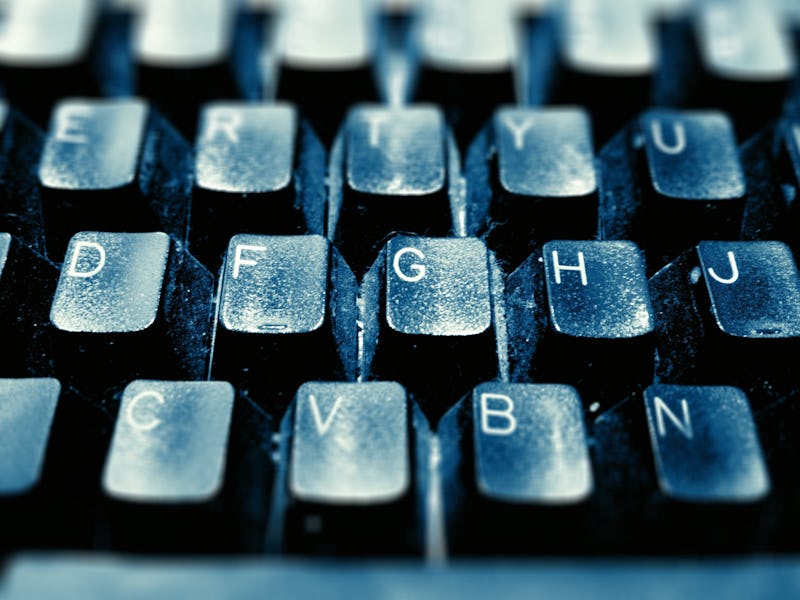Your Computer Keyboard Is Way Grosser Than You Think
Hope you like bacteria, because your hands are dancing in a whole soup of them right now.

Start keeping alcohol at your desk. And a flask doesn’t count. You need swabs and wipes for your keyboard, stat.
The contemporary knowledge worker carries out his or her entire occupation by tickling the QWERTY layout and moving a mouse for hours on end, for days at a time. We humans touch all kinds of weird stuff, and then we touch our computers. Our computers become, in a word, revolting.
In 2008, microbiologist James Francis swabbed the doorknobs, keyboards, and toilet seat at a consumer advocacy group’s office in the U.K. The results were predictable in the you-already-know-but-don’t-want-to-actually-know sense: He found a variety of germs, and out of the 33 keyboards swabbed, four were determined to be health hazards. One had a germ count five times that of the toilet seat.
“[That keyboard] was increasing the risk of its user becoming ill. I haven’t seen a reading like that in a very long time,” Francis said. “It was off the scale.”
Students at the University of Washington found fecal coliform — that is, byproducts of literal poop — on the keyboards of public computers in high-traffic areas around the college campus. To the school’s credit, when the findings were published in the paper, it initiated a weekly keyboard cleaning program.
A world in which we touch everything and then touch our keyboards, it can (and in fact already has) create real health risks. In 2007, the U.S. Centers for Disease Control and Prevention reported a norovirus outbreak at a Washington D.C., elementary school. Turns out the virus had spread when people handled contaminated computer equipment, infecting 79 students and 24 staff members in a school of 314 students and 66 staff.
Obvious steps can mitigate risks associated with diseased keyboards and computer equipment. You’re probably at least a semi-regular hand-washer. That’s enough to get potentially malignant germs off your hands quickly enough to stop them from becoming a real concern. But it still doesn’t change the fact that your computer is likely riddled with biological material you could stand to do without touching.
How to make your computer more sanitary:
Stop eating over your keyboard. Your food is clean, sure, but when bits of it fall into the crannies between the keys, it becomes pure germ-fuel. Your sandwich crumbs create a spawning territory for all order of bacteria.
Dust your keyboard. Dust traps moisture and makes your computing surface a more habitable place for malicious bacteria. Get a can of compressed air and shoo the crud out of there.
Wash your hands before and after using your computer. The idea is to not only stop adding to an existing germ population, and to then immediately remove any germs that climb aboard your hands during a work session.
Make friends with cotton and rubbing alcohol. Just like the University of Washington, you may want to institute a cleaning regimen all your own. Whether you’re aiming for obsessive-grade thoroughness and removing the keys or are simply trying to sterilize a surface, cotton swabs dipped in alcohol make the perfect tool for cleaning in hard-to-reach places.
Use a keyboard cover. Think of it as a pre-formed condom that goes over your computer keys and keeps them isolated from your filthy hands. When you use one of these, it is not your keyboard that gets dirty, but its cover — easy to wash, even easier to replace entirely.
Just try not to think about this stuff the next time you touch another shared surface, like gym equipment, a telephone, or a grocery store shopping cart handle. I could go on, but you know, reading this as I type, I’m suddenly inclined to keep it short.